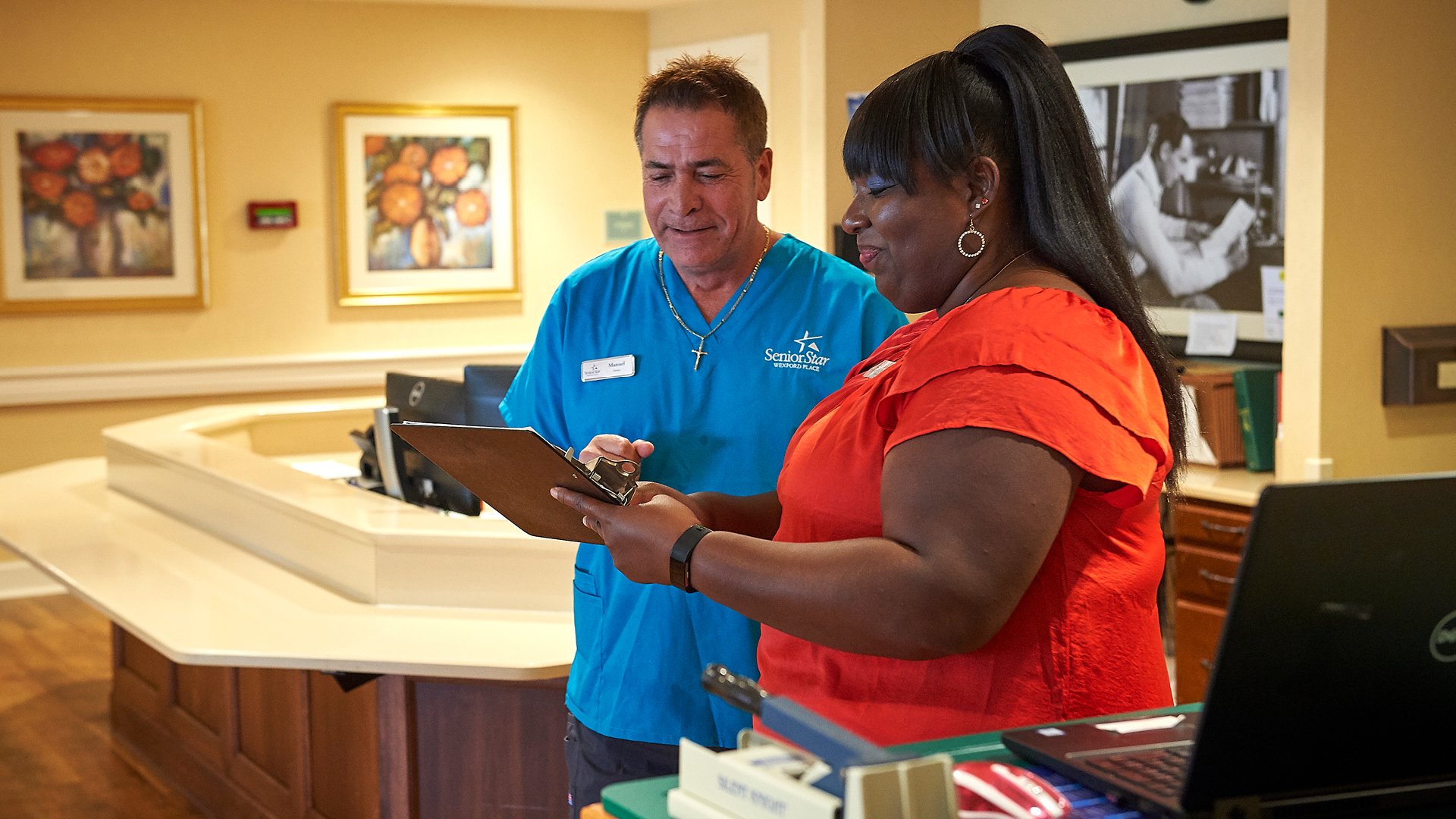5 Tips for CNAs in Senior Living Communities

As the baby boomer generation begins to age, the number of Certified Nursing Assistants, or CNAs, who are needed to help care for them in senior living communities has grown. With 1,579,100 CNAs employed as of 2019, the Occupational Outlook Handbook from the U.S. Bureau of Labor Statistics projects that the position will see 8% growth until 2029 — a rate much faster than other occupations.
CNAs are an integral part of the team that helps care for residents in a senior living community. A typical shift for a CNA is usually busy and active with never a dull moment. In this article, we will give you some practical tips to help you not only stay afloat but also thrive in this busy but rewarding career.
1. Don’t Be Afraid to Ask Questions
Caring for seniors is a big responsibility, and if you’re new to the job, you’re going to have a lot of questions. Asking questions will not only clarify procedures you’ll need to know how to do, but it will also help you prevent unnecessary mistakes that could affect the care of your patients.
Don’t forget that you’re part of a nursing team. Your team members know how challenging your job is, and they should be there to help guide you through the learning curve.
2. Carry a Small Notebook
Being a CNA requires a lot of different irons in the fire at one time. Unless you have a photographic memory, carrying a small notebook to keep notes in for each shift will help you keep it all straight. From what each resident needs at the beginning of your shift to reminders you need to communicate to other caregivers, a small notebook will help you stay on top of things in a field where forgetting something could be detrimental to a resident’s wellbeing.
3. Get to Know Your Residents
As someone in charge of a resident’s daily care, there will most likely be cases where you’re in their life more than their family. Get to know your residents well, learning personal details about their lives and their passions and understanding the details of their care plans so you know exactly what they need.
Paying attention to these details will help establish trust between you and your residents — a vital component in the caregiver/resident relationship. Remember that being reliant on another person for basic needs can leave someone feeling vulnerable. Trust in you as a caregiver will give them peace of mind that they’re in good hands.
4. Document and Communicate Constantly
Again, you’re part of a team. Just as you depend on your team members to help you take care of your residents, your team members are relying on you as well. Document all details of resident care carefully in their chart to ensure the next CNA will know exactly what you did and what still needs to be done to care for the resident.
Communicate with your team members about where you will be, whether you are going on break, or if you will be taking extra time with a resident. Also, communicate any concerns you have about a resident, as “putting heads together” often comes up with a better solution than you could alone.
5. Observe Other CNAs at Work
No two people do the same job in the same way. Observing other CNAs during their shift could give you insight and ideas into ways you could improve the care you’re providing residents. Your fellow CNAs have a lot to teach you about doing what’s best for the residents, and observing them tackling the challenges of the job could help you improve your own technique and practices.
Senior Star has put together a helpful guide for CNAs and other caregivers: Self-Care for the Caregiver, which you can download here.
Tags: CNA, Senior Living

